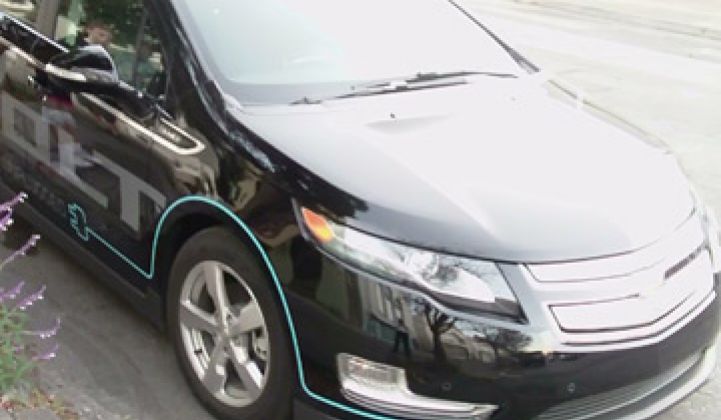Who do you call if you want information on Oracle's offerings to the utility market?
Not Stephan Scholl. Scholl, until recently the senior vice president and general manager of the Oracle tax and utilities global business unit, is no longer at the company. His Oracle web site, weirdly, still exists, but Stephan in December joined Infor, an enterprise software and cloud services company that competes with Oracle. Charles Philips, the former Oracle exec, is the CEO at Infor and Stephan was his lad.
This likely means Linda Jackman at Oracle, who's actually better known, runs the show. We called Oracle, but as usual, no reply came. Thanks to the concerned citizen for pointing this out.
Elsewhere:
--MIT issued a report this week that demonstrates that hybrids can actually release fewer emissions than plug-in hybrids in some circumstances. It all depends on your source of electricity. If a plug-in is charged completely through coal-generated electricity without carbon capture, it will emit more greenhouse gases than a regular hybrid.
However, that's more of an exception than a rule. If charged from power from combined-cycle natural gas plants, the plug-in wins. A plug-in, in that situation, emits 50 percent fewer emissions than a regular car, while a hybrid will emit 33 percent fewer emissions. Power the plug-in from clean energy sources like nuclear and solar and it will emit 66 percent less emissions.
The study (get the full one here) will likely come in handy in arguments over whether plug-ins and hybrids do cut emissions. They do. And in most situations, plug-ins will be better. The U.S. currently gets about 45 percent of its power from coal but Black and Veatch expects the total to drop to 22 percent by 2035. Natural gas, meanwhile, will increase to 40 percent of the share by then. Earlier research from UC Davis indicated that plug-ins do better than hybrids in most regions of the U.S. already except for coal-heavy locales like Ohio. (Side note: critics will also claim that manufacturing batteries causes greenhouse emissions, but guess what? So does making engines.)
MIT urges that the U.S. pursue vehicle electrification for economic, environmental and security reasons.
"EVs have the potential to reduce U.S. oil dependence. Analysis indicates that oil dependence, price volatility, and the setting of global oil prices by cartels have cost the US economy $5.5 trillion since 1970," the report stated.
That's trillion, not billion.
--Speaking of electric cars, the BBC shamelessly tried to pawn off a series of articles that allegedly showed how EVs aren't ready for the market. It drove a Mini-E up to Edinburgh. It took four days. Shameful, the BBC concluded.
There were a few problems. A Tesla Roadster driver did the same course in a day. The BBC countered that it chose the Mini-E because it was more of a mainstream car. Unfortunately, the Mini-E is just a prototype. Second, if it were actually being sold, it would cost almost as much as a Tesla. It is powered by 5088 lithium-ion cells. The Tesla has 6821. (And neither have back seats: the Mini-E gives that up for batteries.)
It's no mainstream car. But it's not a commuter car, either. It's just a weird mix -- more expensive than an economy car and short of being a luxury car--that falls short of both accounts. Blame it on the car. And the BBC.
--Finally, Solopower, the maker of copper indium gallium selenide (CIGS) solar cells, said it got $20 million from the state of Oregon in a loan to open a 75-megawatt plant. Solopower applies CIGS to flexible substrates via electroplating. AQT announced a factory with spiffs in South Carolina. Solopower has Oregon. Mississippi has given over $250 million out in loans to startups.
It is starting to look like biofuels circa 2004 around here.



